The “Education, entrepreneurship and cultural heritage” Initiative
"These stones that sink down into the years, up to where will they lure me ?"
” G. Seferis "Novel" (December 1933- December 1934)
The scientific team responsible for the Action: Dr Vasiliki Brinia - Head of the Action, Dr Mairi Belogianni, Georgia Manolopoulou, Dr Panagiotis Mastradonis, George Tziros. Honorary member: Dr Theodoros Benos.
Initiative’s Interconnection with the strategic plan and the demands of AUEB
AUEB is one of the country’s top Universities and its vision is to be internationally recognized as a center of excellence. This goal requires up-to-date curricula, more efficient teaching methods and emphasis on linking theory to practice.
The vision of the Program is in line with the strategic plan of AUEB for the years 2016-2021, which is excellence, extroversion and innovation regarding the education of prospective teachers and future executives of education units with values, emotional intelligence and leadership skills. The aim is to encourage the students to become facilitators of innovation concerning administrative and educational issues in a wide and international environment.
The implementation of the Initiative contributes to achieving an essential goal of the Program, which is the cultivation of core educational values through experiential learning. The archaeological/historical sites are part of the man-made and natural environment, and are worthy of protection and promotion. M. Mercouri had claimed that “we have the privilege to live in a country, where every inch of the ground attests to culture and history”. Such a unique privilege is accompanied with the obligation of protecting this cultural heritage. Therefore, realizing the monuments’ value could contribute to sustainable development and improve the quality of life in our society. What is more, the ruins of the monuments set a challenge regarding the connection of the Past with the Present. Incorporating these monuments into the modern world has to be made in a way that will revive the purpose of their construction: the edifying kind of entertainment, in the Greek sense of “Psychagogia” (literally soul-leading), which derives from the timelessness and the splendour of the monuments.
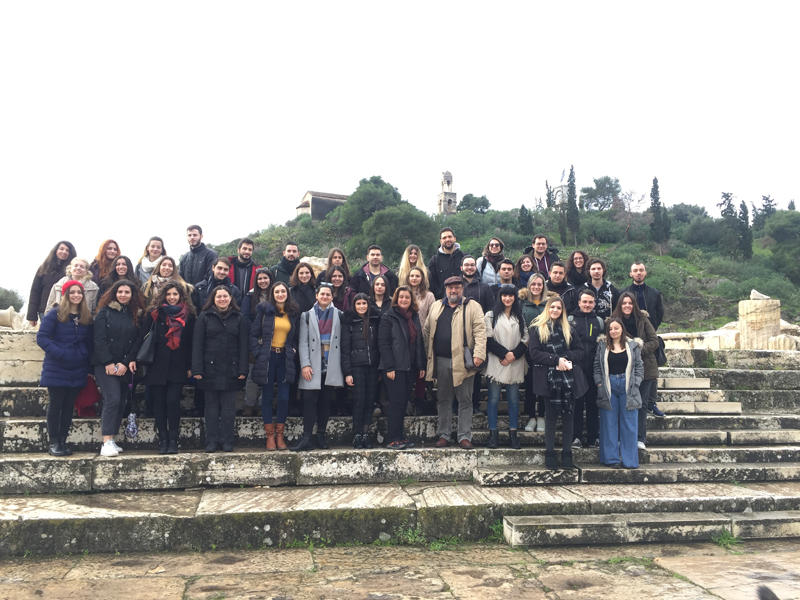
The Initiative’s Vision
The vision, concerning the scientific collaboration between the TEP and the NGO “Diazoma” (www.diazoma.gr), is to support volunteering and educational actions. These actions will be in the field of the holistic management of cultural heritage and will promote ways of utilizing the cultural heritage for the prospective educators’ training. The objective of the collaboration is planning and implementing such actions. This approach is related to the connection of the cultural heritage of the country with the business sector, which is expressed through the philosophy of programmes, such as the Cultural / Environmental Promenades and the Archaeological Parks, proposed by the "Diazoma" Association. Furthermore, youth entrepreneurship is also promoted through the “Creative Industries”, the products of which can be related to the “economy of the experience”. This emerging model of economic activity is based on the creation of “intangible” value, which is able to enrich the traditional products and services. Such products are pertinent to the fields of environment, tourism, agriculture, museums and theme parks among others.
The Objectives of the Initiative
The main objectives of this Initiative, that includes experiential and anthropocentric actions, are for each student:
- To acquire a theoretical and empirical background as well as to find ways and ideas regarding the integrating of cultural heritage into the teaching of economics and informatics at schools.
- To acknowledge the contribution of cultural heritage to education and the development of extraversion, cultivation and awareness.
- To develop their teaching techniques through the development of creativity and a “thinking out of the box” mindset, so that the school subjects of economics and informatics are perceived verbally and logically but also through the utilization of Greek cultural heritage and entrepreneurship with the aim of maximum social and economic benefit.
- To learn how to plan, organize and implement educational and entrepreneurial actions concerning an archaeological site that will be interconnected with the school subjects of economics and informatics.
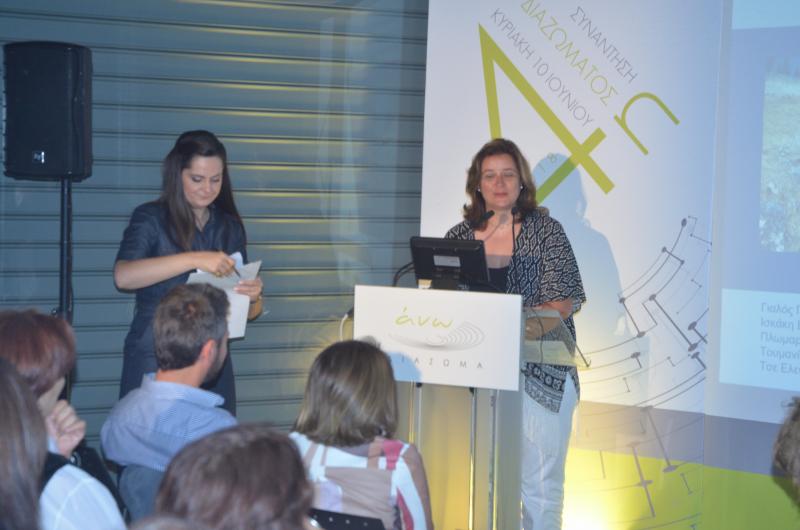
Scientific Foundations of the Initiative
The stimulus for the collaboration between the TEP of AUEB and the "Diazoma" Association was a James Gilmore’s article which was published in Harvard Business Review (1998) and the book titled «The Experience Economy: Work is Theatre & Every Business a Stage» (1999) by B. Joseph Pine. The main idea of this innovative approach to teacher education is the transition from an economy of goods and services to the economy of experience. As the title of B. Joseph Pine’s book goes, every organization is a theatrical stage, the employees are the performers and the work is the performance. Nowadays the customer does not simply buy a product, but also acquires an unforgettable experience thanks to it. Thus, the product is actually the experience and the memory of it. In a way, customers spend money to invest in memories. The most characteristic aspect of the economy of the experience is the intense desire for acquiring intangible products, such as the experience of a journey in a charming destination. This means that people devote even more time to what sociologists call “the third space”, which is any place apart from the home and the work environment. The archaeological sites and the monuments comprise a very attractive combination of such “third places” and intense experiences.
Hence, some of the collaborative projects concern the conduction of innovative and educational business plans by student groups, based on the cultural promenades of the "Diazoma" Association. The purpose of the projects is to propose ideas for the utilization of the monuments in such ways that promote the sustainable development of the examined areas.
This innovative approach is believed to constitute an “alternative prospective” concerning the incorporation of entrepreneurship into the educators’ training and into higher and highest education.
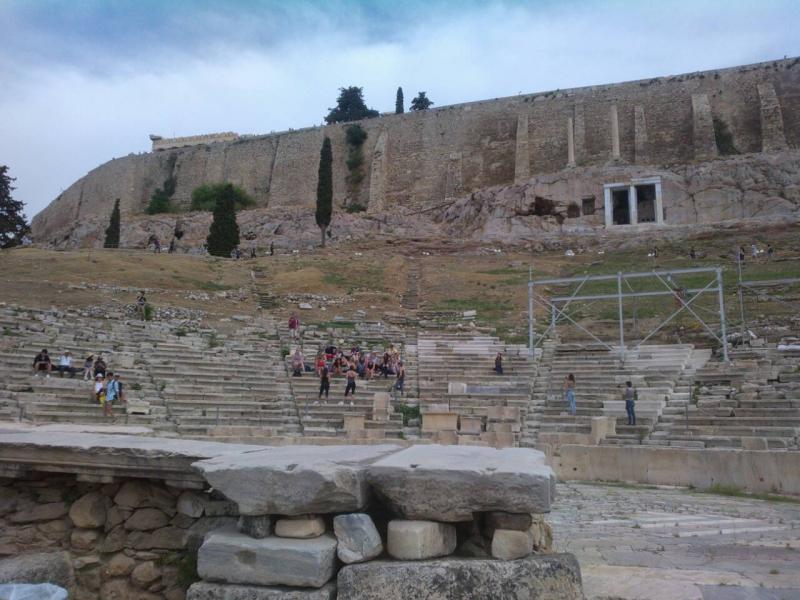
Approach - Means
For the self-driven education of the students, a multifold, experiential and group-oriented approach is followed. The teaching methods have a “spiral” form and is based on A) group and individual work, B) the theoretical approach of the issue, C) the experiential approach.
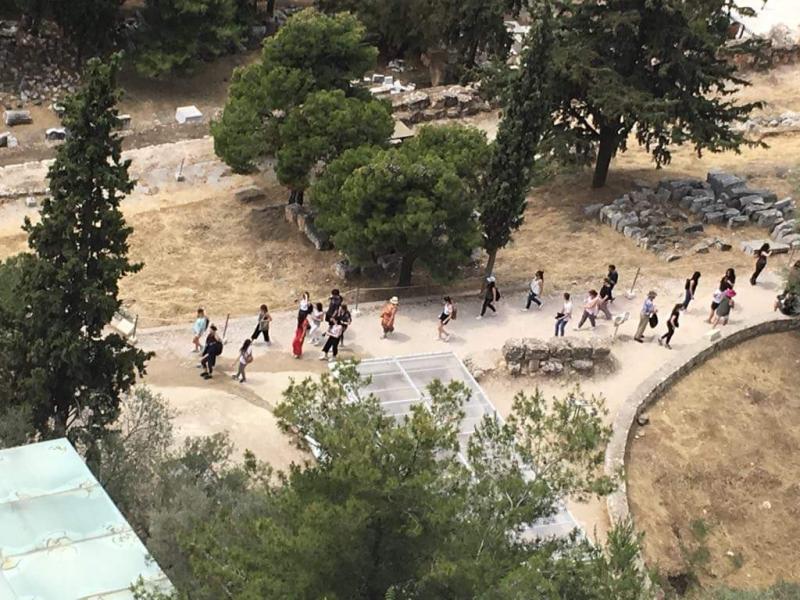
Collaboration of the Initiative
- The "Diazoma" Association(http://www.diazoma.gr/)
"Diazoma" is an association the members of which have focused on promoting the ancient theaters, funding and integrating them into our everyday lives. "Diazoma" pursuits to protect ancient theaters, which are magnificent achievements of ancient Greek architecture and the sites where the democratic institutions and cultural creation flourished.
Utilizing synergies between citizens, institutions, scientists, businesses and European Funding Programs, «Diazoma» plans and proposes the implementation of new programs, the objective being the restoration and promotion of monuments, as well as their connection with sustainable development.
The most important action is the “Cultural Promenades/Routes”, that are taking place in several districts of our country and constitute a cultural tourism product. This product is formed by a specific element, such as the monuments of a district, both cultural and natural. These “Promenades” are about a specific area, they have a central theme and they acquire a “touristic identity” with a specific brand name. The main objective of a “Promenade” is to be a leverage for the sustainable development of an area, in both ways economically and socially.
“Diazoma” plans the implementation of a holistic program on Attica. The goal of the project is the restoration of the functional connection between the city of ancient Athens and the Sanctuary of Eleusis, the silver mines of Laurium and the haven of Piraeus (Athenian trilogy). These aspects used to display the political, spiritual, philosophical, financial and commercial splendour of ancient Athens.
- Innovation & Entrepreneurship Unit and Athens Center for Entrepreneurship and Innovation (ACEin) of AUEB
Collaboration with the specialized Innovation & Entrepreneurship Unit and the ACEIN of the AUEB. (https://www.aueb.gr/el/mke and https://www.acein.aueb.gr). This collaboration includes acquiring the necessary theoretical basis for the preparation of a comprehensive business plan in the field of cultural management of Greek monuments by the students of the program.
-
Another specialized team is working on Action consisting of accredited secondary education economists led by Mr. George Tziros, who is an economist, President of "XENOFON" magazine - who has been awarded as one of Europe's leading entrepreneurial masters.
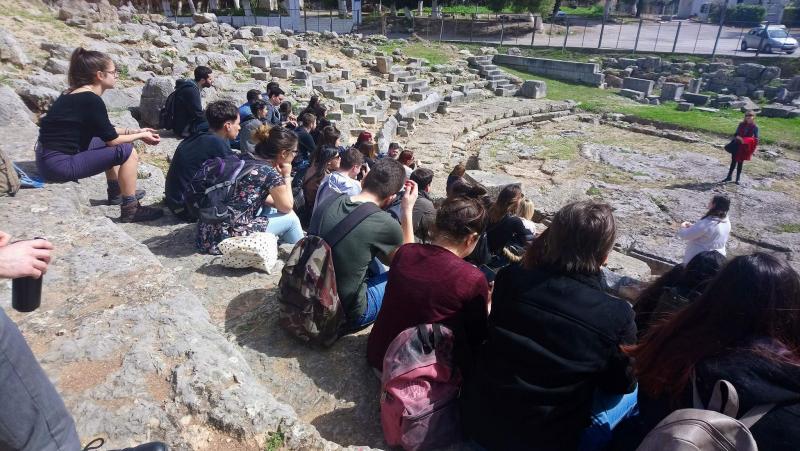
Learning outcomes
Both internal and external, innovative experiential actions that have been organized, have shown over time to inspire self-directed learning among the prospective teachers.
The Initiative has a significant influence on the progress of prospective teachers, which is revealed thanks to both the great quantitative outcomes that have been achieved over the last two years regarding the evaluation of the AUEB students, and the educational research that has been carried out during the recent years by Dr. Brinia; this research has been published in international and domestic educational journals.
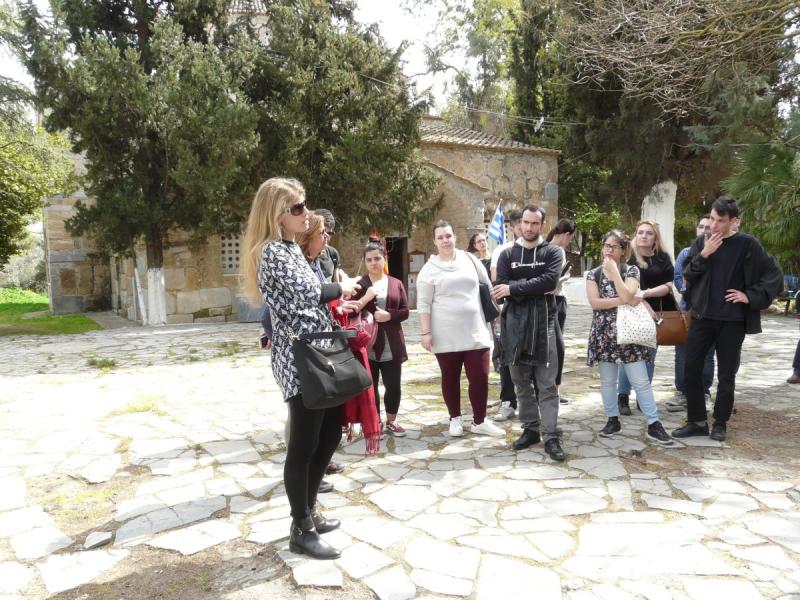
"Ancient Greeks used to refer to culture as “paideia” (education), which they linked with the multi-faceted development of man’s personality through the connection with all forms of art. Nowadays, classical education is necessary, mainly, for its content, its values, its meanings, its messages created by the ancient Greek thought. These elements were embedded in classical texts, were used as the basis of European culture (along with the Roman law’s and Christianity’s influences) and today help us to seek the deeper essence and value of man. At the same time, we can oppose the modern humanitarian crisis (war, refugee issue, fanaticism) to Greek humanism, inspired by the anthropocentricity of the ancient civilization, which is based on harmonious cooperation and the integration of man in society, not on individualism."
G. Babiniotis, Professor of Linguistics, University of Athens
Diazoma Awards
"Always strive for excellence and prevail over others"
Homer's Iliad, Ζ, 208
Each year a group of students is distinguished in the competition of Diazoma for the best project according to the topic raised by the special committee which evaluates the work done by the students of the Program at the end of the spring semester. The award is a testament to the hard work of the students of the Program who prove that our country has highly qualified teachers who honor education with ethics, values, concerns and vision!
Congratulations to all who are involved with our vision and our Action!
Topic : "Proposals to exploit Orchomenos Boeotia's cultural reserve"
Members of the distinguished team:
Vagia Iskaki, Department of Accounting and Finance
Andromachi Toumanidou, Department of Informatics
Eleftheris Tse, Department of Communications and Marketing
Giorgos Gialos, Department of Accounting and Finance
Zoe Plomariti, Department of Business Administration
Presentation of the research from the team at 4η Ano Diazoma showing
Topic: "Proposals to exploit the cultural reserve of Eleusis in the context of the Athenian trilogy"
Members of the distinguished team:
Troulinou Aristea, Department of Management Science and Technology
Vasilakis Georgios, Department of Economics
Karagianni Elvira, Department of Economics
Karanasiou Demetra, Department of Business Administration
Markesini Paraskevi, Department of Economics
Presentation of the research from the team at 4η Ano Diazoma showing
Topic: "Proposals to exploit the cultural reserve of Eleusis in the context of the Athenian trilogy(Athens-Eleusis-Laurio)"
Members of the distinguished team:
Giarmantziadi Anastasia, Department of Business Administration
Gkouma Andriani, Department of Informatics
Deimezi Eleni, Department of Informatics
Katsionis Christos, Department of Accounting and Finance
Panteli Danae, Department of Accounting and Finance
Members of the distinguished team::
Athanasiou Lydia,Department of Informatics
Kakoulaki Marina ,Department of Management Science & Technology
Kasimati Ioanna , Department of Business Administration
Syllaiou Vasiliki , Department of Business Administration
Scientific Papers
Student research work
- Here you can see the topic of the project of the academic year 2020-2021
- Here you can see the topic of the project of the academic year 2019-2020
- Here you can see the topic of the project of the academic year 2018-2019
- Here you can see the topic of the project of the academic year 2017-2018
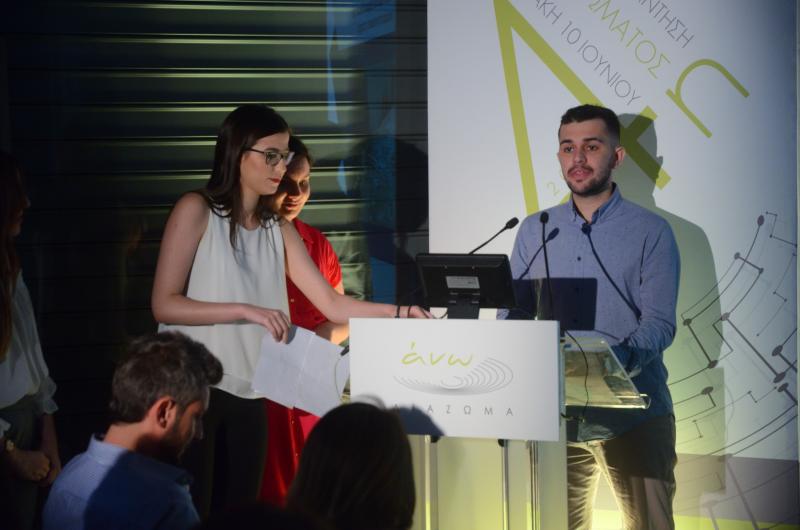
Photo gallery
- Field research in the archaeological site and the city of Eleusis - 11/01/2019
- AUEB Teacher Education Program at the 4th annual meeting of Ano Diazoma: ”diazoma network” on 10th June 2018
- Cultural Route: Ancient Theater of Dionysos - Sacred Rock of Acropolis - 24/5/2018
- Guided tour in Orchomenos Boeotia by Diazoma on 17th March 2018
- Conference organised by Diazoma and TEP AUEB at Athens University of Economics and Business on 16th March 2018 - 16/3/2018
Scientific responsible of the initiave: Dr Vasiliki Brinia



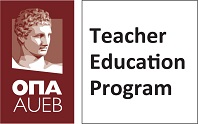
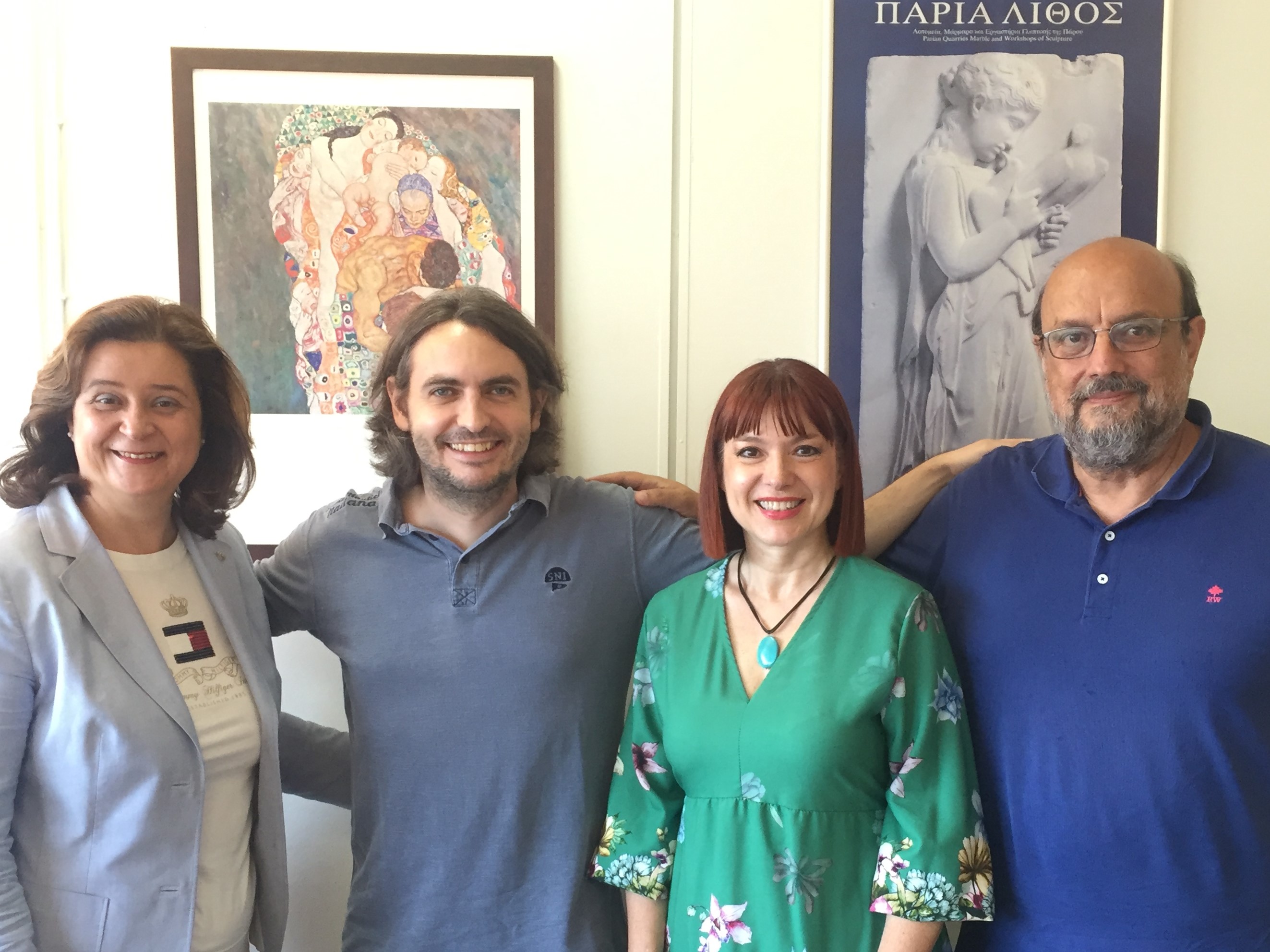
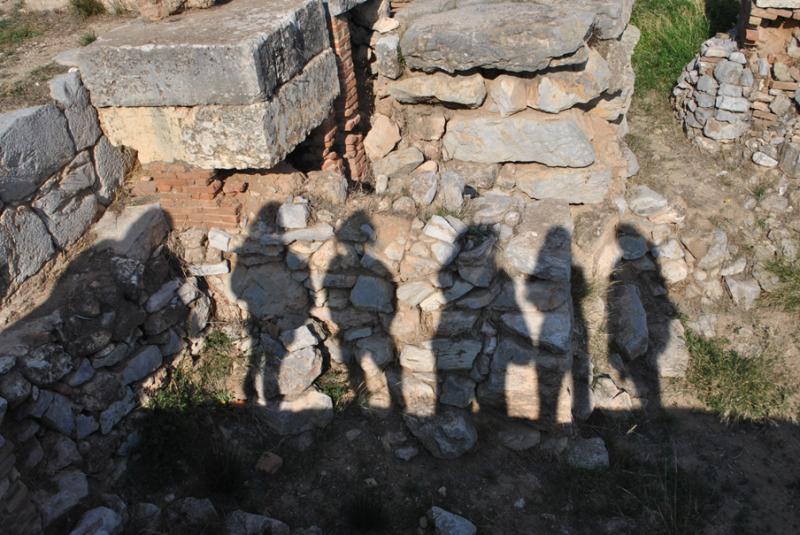
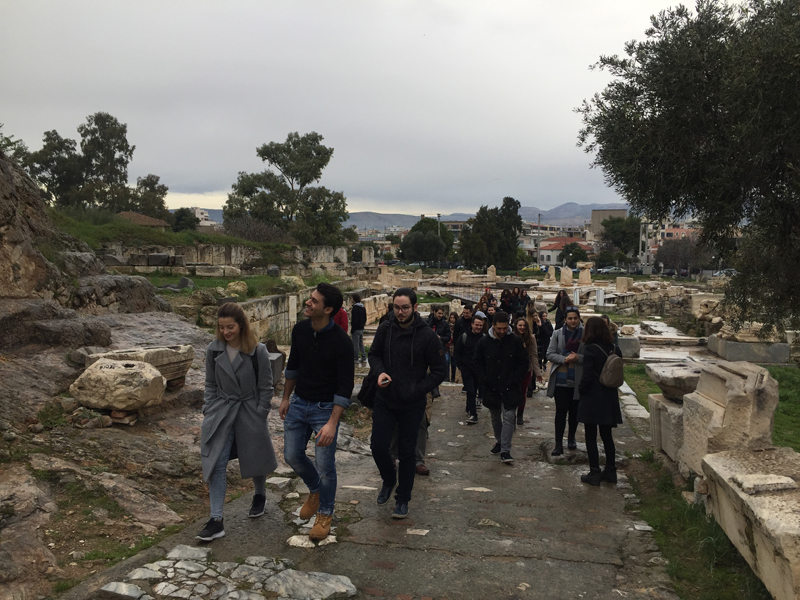
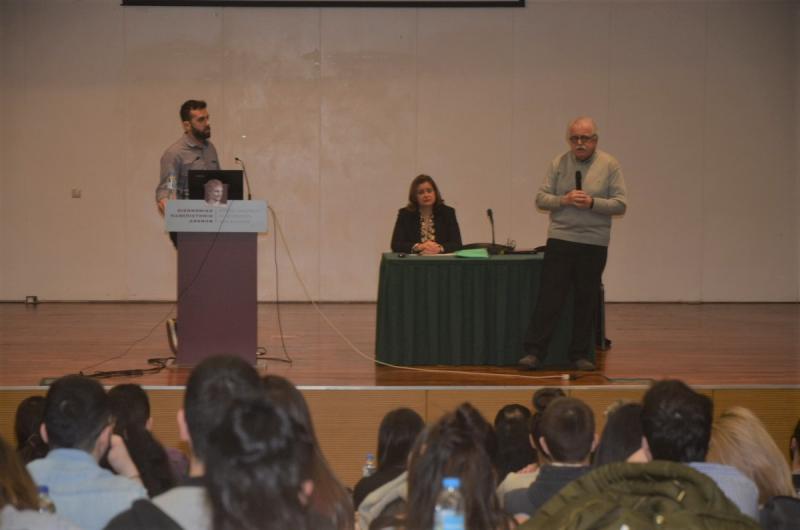
 76 Patission Str.
76 Patission Str.
